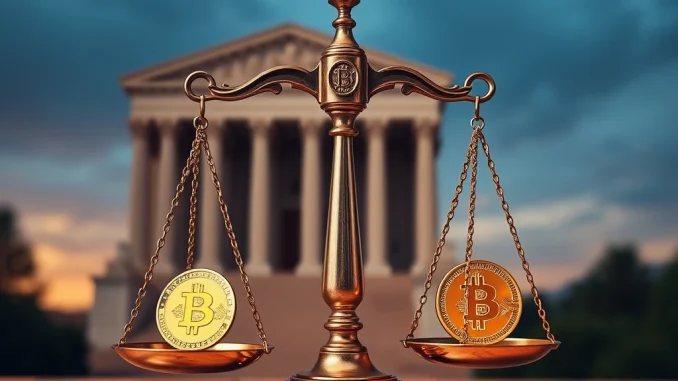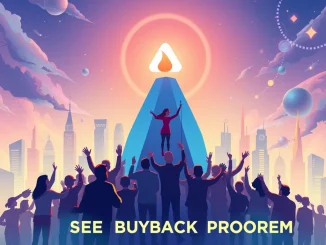
In a surprising turn of events within the crypto legal landscape, a U.S. federal court has overturned key convictions against Avraham Eisenberg, the individual behind the significant Mango Markets incident. This development raises critical questions about how traditional legal frameworks apply to the decentralized world of DeFi.
Understanding the Avraham Eisenberg & Mango Markets Incident
Avraham Eisenberg was previously convicted in early 2024 for his actions involving the Solana-based decentralized exchange, Mango Markets. The original case centered on allegations of market manipulation and fraud. Specifically, prosecutors argued that Eisenberg artificially inflated the price of the MNGO token by over 1,300%. Using these inflated gains as collateral, he then withdrew approximately $110 million in various crypto assets from the platform.
The Shocking US Court Ruling
The recent development saw a U.S. federal court judge overturn the fraud and market manipulation convictions. According to reports, the judge determined there was insufficient evidence to prove that Eisenberg made false statements to the Mango Markets protocol itself. This distinction is crucial.
The core of the judge’s reasoning appears to hinge on the permissionless and automated nature of the DeFi platform. The ruling suggested that the protocol, being code-based and permissionless, was not capable of being legally ‘deceived’ in the same way a human or traditional entity could be. This interpretation led to the vacating of two charges and an acquittal on a third.
Implications for Crypto Legal Cases and DeFi Exploits
This particular US court ruling has significant implications for future crypto legal cases, especially those involving DeFi exploit scenarios. It highlights the challenges prosecutors face when applying existing laws, designed for traditional finance and human interaction, to autonomous protocols.
Key takeaways from this ruling include:
- Focus on Intent vs. Mechanism: The ruling seems to shift the legal focus from the outcome of the actions (the withdrawal of funds) to the method used and whether it involved legally defined ‘deception’ of the protocol itself.
- DeFi’s Permissionless Nature: The judge’s view that a permissionless protocol cannot be ‘deceived’ sets a potential precedent that could complicate future prosecutions of exploits that strictly follow a protocol’s code, even if the actions are seen as manipulative or harmful.
- Challenge for Regulators: This case underscores the ongoing struggle for regulators and courts to define and prosecute illicit activities within the unique technical and philosophical landscape of decentralized finance.
While the actions taken by Avraham Eisenberg on Mango Markets resulted in substantial losses for others, this legal outcome indicates that proving traditional fraud within the context of a purely code-driven, permissionless system is legally complex.
What Does This Mean for the Future?
This ruling doesn’t necessarily mean that all future DeFi exploit cases will result in acquittals. However, it does signal that the legal strategy will need to adapt significantly. Prosecutors may need to find new ways to frame charges, perhaps focusing more on market manipulation statutes that don’t require proving deception of an automated system, or lobbying for new legislation specifically tailored to decentralized finance.
For users and developers in the DeFi space, this case serves as a stark reminder that ‘code is law’ can have complex legal ramifications. While a protocol may execute transactions as programmed, the legality of actions taken within that protocol can still be subject to interpretation and challenge under existing law.
Summary: A Pivotal Moment in Crypto Law
The overturning of Avraham Eisenberg‘s convictions in the Mango Markets case marks a pivotal moment in the intersection of cryptocurrency and the legal system. The US court ruling, based on the principle that a permissionless DeFi protocol cannot be legally deceived, presents a significant hurdle for prosecuting certain types of DeFi exploits under current law. As the legal system grapples with the nuances of decentralized technology, this crypto legal case highlights the urgent need for clarity and potentially new frameworks to address malicious activities in the evolving digital asset landscape.



